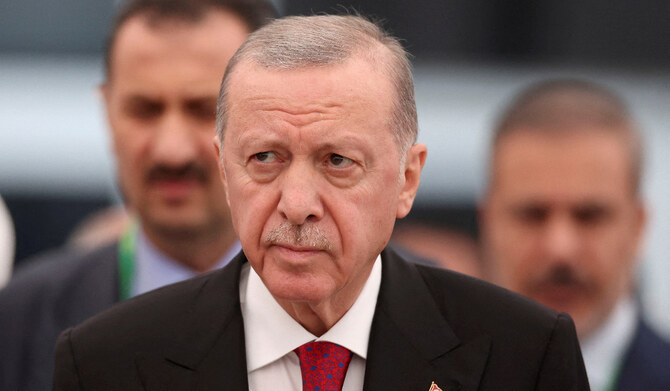GENEVA: Two months into Israel’s full blockade on aid into Gaza, humanitarians described Friday horrific scenes of starving, bloodied children and people fighting over water, with aid operations on the “verge of total collapse.”
The United Nations and the Red Cross sounded the alarm at the dire situation in the war-ravaged Palestinian territory, demanding international action.
“The humanitarian response in Gaza is on the verge of total collapse,” the International Committee of the Red Cross warned in a statement.
“Without immediate action, Gaza will descend further into chaos that humanitarian efforts will not be able to mitigate.”
Israel strictly controls all inflows of international aid vital for the 2.4 million Palestinians in the Gaza Strip.
It halted aid deliveries to Gaza on March 2, days before the collapse of a ceasefire that had significantly reduced hostilities after 15 months of war.
Since the start of the blockade, the United Nations has repeatedly warned of the humanitarian catastrophe on the ground, with famine again looming.
The UN’s World Food Programme (WFP) said a week ago that it had sent out its “last remaining food stocks” to kitchens.
“Food stocks have now mainly run out,” Olga Cherevko, a spokeswoman for the UN humanitarian agency OCHA, told reporters in Geneva Friday via video link from Gaza City.
“Community kitchens have begun to shut down (and) more people are going hungry,” she said, pointing to reports of children and other very vulnerable people who have died from malnutrition and ... from the lack of food.”
“The blockade is deadly.”
Water access was also “becoming impossible,” she warned.
“In fact, as I speak to you, just downstairs from this building people are fighting for water. There’s a water truck that has just arrived, and people are killing each other over water,” she said.
The situation is so bad, she said that a friend had described to her a few days ago seeing “people burning ... because of the explosions and there was no water to save them.”
At the same time, Cherevko lamented that “hospitals report running out of blood units as mass casualties continue to arrive.”
“Gaza lies in ruins, Rubble fills the streets... Many nights, blood-curdling screams of the injured pierce the skies following the deafening sound of another explosion.”
She also decried the mass displacement, with nearly the entire Gaza population being forced to shift multiple times prior to the brief ceasefire.
Since the resumption of hostilities, she said “over 420,000 people have been once again forced to flee, many with only the clothes on their backs, shot at along the way, arriving in overcrowded shelters, as tents and other facilities where people search safety, are being bombed.”
Pascal Hundt, the ICRC’s deputy head of operations, also cautioned that “civilians in Gaza are facing an overwhelming daily struggle to survive the dangers of hostilities, cope with relentless displacement, and endure the consequences of being deprived of urgent humanitarian assistance.”
The World Health Organization’s emergencies director Mike Ryan said the situation was an “abomination.”
“We are breaking the bodies and the minds of the children of Gaza. We are starving the children of Gaza,” he told reporters on Thursday.
Cherevko slammed decision makers who “have watched in silence the endless scenes of bloodied children, of severed limbs, of grieving parents move swiftly across their screens, month, after month, after month.”
“How much more blood must be spilled before enough become enough?“

























